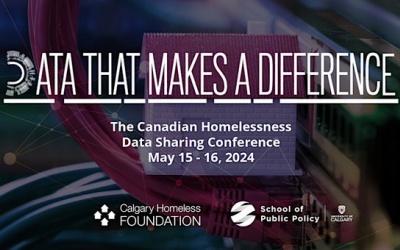Refundable Tax Credits as Steps toward a Guaranteed Basic Income for Canada?
As the COVID-19 pandemic exposed the deficiencies in income support systems in Canada, calls have been amplified for a Guaranteed Basic Income (GBI) to provide more comprehensive, ideally universal, protection for household incomes. Some called for permanent implementation of the Canada Emergency Response Benefit (CERB) but, popular as the CERB was, it has recognized design deficiencies that might be expected from its rushed development.
Opposition to a GBI has also arisen recently. After a thorough vetting of the issue, the B.C. Expert Panel on Basic Income concluded that the province should fix existing supports and services rather than institute a GBI. That conclusion, while widely reported as a rejection of basic income, should rather be understood as a rejection of a GBI on its own at the provincial level. A careful reading of the report would reveal that the Expert Panel viewed the GBI as a useful guideline for future modification and development of income assistance in B.C. and the province should pursue a GBI without federal participation, since the tax system provides the best way to implement a GBI and the B.C. tax system, like all provinces but Quebec, is thoroughly interwoven into the federal system. The Expert Panel even goes so far as to recommend cooperation with the federal government to address barriers to benefits receipt and tax filing under current tax administration. [Full disclosure: I was a research contractor for the Expert Panel but I was not involved in the writing of the final report.]
While a GBI is often conceived as a grand standalone plan, the federal government has already moved in significant ways toward a basic income plan for certain target groups. That is, we have developed income support programs along the guidelines set by the Basic Income Canada Network: programs that provide a maximum benefit to those with the lowest incomes and gradually reduce the benefit as incomes rise such that those with higher incomes receive no benefit. The vehicle for these programs is the refundable tax credit, which provided the basis for a GBI in form of a negative income tax in the earliest proposals by Friedman and Mirrlees a half century ago. As the tax system has become increasingly efficient at providing benefits to tax filers, and as the proportion of the population who file taxes has increased, the refundable tax credit has become the sensible choice for the delivery of a GBI. The B.C. Expert Panel advocates refundable tax credits as the most effective method of delivering a GBI to reduce poverty.
Federal refundable tax credit initiatives date back more than half a century. The Guaranteed Income Supplement was introduced in 1967 to top up incomes by 40% of the value of Old Age Security for those seniors with no other source of income. The benefit was reduced at a rate of 50 cents for each dollar of income beyond OAS to target the lowest income seniors. Its popularity ensured that it has endured to this day as an effective tool to keep poverty rates low among elderly Canadians.
The federal sales tax refundable credit was introduced in 1986 as a modest annual payment for low-income families. It became the Goods and Services Tax (GST) Credit shortly thereafter to assist low-income consumers. It has also endured as a modest quarterly benefit of $456 for single Canadians, $598 for couples, and $157 for each child under 19. Benefits are reduced but at a gradual rate of 5% for family incomes exceeding $38,892.
The Canada Child Benefit was instituted in 2016 for low-income families with children. It offers a guarantee of about $500 per child per month, depending on age, with benefit reduction rates that vary from 3% to 23%, depending on the age and number of children. The federal government claims that the Canada Child Benefit lifted more than 300,000 children out of poverty in its first two years.
While these current refundable tax credits have been instituted and maintained under both Liberal and Conservative governments, the Liberals seem to have more clearly embraced refundable tax credits to provide income support for Canadians. Their current platform, for example, aims to augment the Guaranteed Income Supplement by $500 for singles and $750 for couples. It also proposes a Canada Disability Benefit to provide a monthly refundable tax credit for persons with disabilities aged 18-64. The Conservatives, for their part, have proposed to convert the Childcare Expense Deduction to a refundable tax credit to increase assistance to low-income families with child care expenses.
Recognition of the effectiveness of refundable tax credits to deliver benefits to address poverty and assist low-income families should be accompanied by recognition that targeted credits to seniors, children, and those with disabilities leave a significant gap in income support for non-elderly adults, an outcome recognized by the B.C. Expert Panel. The federal sales tax credit covers this group but it is very modest. A refundable tax credit program for non-elderly adults would address remaining poverty and allow Canada to achieve the goals set by the Poverty Reduction Act to reduce the poverty rate to 6% by 2030.

